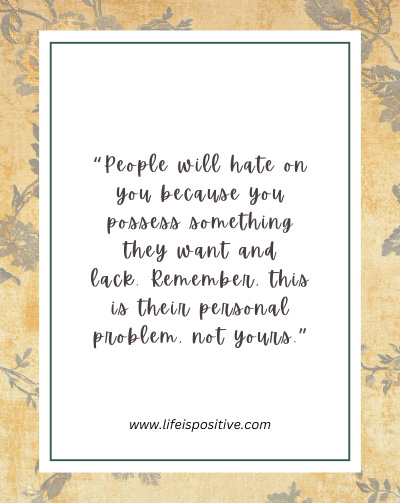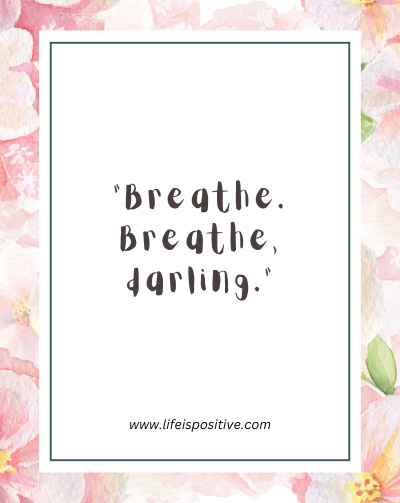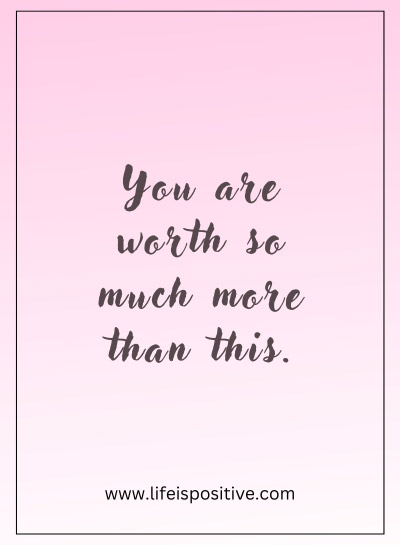|
Getting your Trinity Audio player ready...
|
Let’s face it—no matter how kind, thoughtful, or well-intentioned you are, not everyone will be your biggest fan. That’s just life. But the real growth happens in how you respond.
Learning how to deal with people who dislike you is more about protecting your peace than winning them over. It’s a spiritual act of choosing grace over grudges and compassion over conflict.
In this post, we’ll explore empowering, heart-centered ways for navigating how to deal with people who dislike you, without losing yourself in the process.
The Benefits of Accepting People Who Dislike You
Part of growing spiritually and emotionally is learning to accept this uncomfortable truth without letting it shake your sense of self.
Let’s be real—accepting people who dislike you doesn’t mean you’re fake, weak, or trying to win them over. It just means you’ve made peace with their presence and decided not to let their opinions mess with your self-worth.
The moment you stop taking it personally? That’s the moment you start taking your power back. You create space between their negativity and your energy, and that space is pure freedom.
Starts with setting healthy energetic boundaries, showing compassion from a distance, and pouring your attention into those who truly see and support you.
The truth is, some people project their own fears, pain, or jealousy. You don’t have to carry that.
When you accept them without resistance, you’re not giving in—you’re rising above. That’s not weakness. That’s spiritual strength. And that’s how you keep your peace intact.
How to Accept People Who Dislike You
Discover the art of acceptance in dealing with individuals who may not harbor warm feelings toward you. Learn how this journey can boost self-confidence, enhance empathy, and foster personal growth.
Explore practical strategies for maintaining your inner peace while navigating the complexities of human relationships.
1. Recognize Their Right to Feel:
Remember, everyone has the right to their own opinions and feelings. It’s perfectly fine for someone to have negative feelings toward you, just as it’s okay for you not to have positive feelings for everyone you encounter.
Respect for diverse perspectives is essential for harmonious interactions.
2. Avoid Taking It Personally
Recognize that their dislike often reflects their own struggles, experiences, and insecurities more than anything about you.
People’s judgments are frequently colored by their personal history and biases. Understanding this can help you take their negativity less personally and maintain your self-esteem.
3. Stay Calm and Composed
In tense situations, stay composed. Reacting with anger or defensiveness usually worsens matters and can lead to an escalation of the conflict.
By keeping your cool, you maintain control over your emotions and are better equipped to address the situation rationally and find constructive solutions.
4. Seek Constructive Feedback
If feasible, consider requesting specific feedback from individuals who hold unfavorable opinions of you. Their insights can be a valuable resource for personal development and enhancement.
This proactive approach allows you to gain constructive advice and potentially improve yourself based on their input.
5. Shift Your Perspective
Shift your perspective by attempting to view the situation from their angle.
Empathy plays a vital role here; it allows you to grasp their concerns, even if you don’t share their opinions.
This helps build understanding and bridges gaps in communication.
6. Practice Forgiveness
Embrace forgiveness as a practice: Clinging to resentment primarily harms you. Granting forgiveness to those who harbor negative feelings towards you can unburden you from the weight of negative emotions.
It’s a powerful way to liberate yourself and find emotional peace.
7. Surround Yourself with Supportive People
Concentrate on those who cherish, love, and value you. Their positivity can act as a counterbalance to the negativity from those who hold unfavorable opinions of you.
Building a strong support system can uplift your spirits and help you navigate through challenging situations more effectively.
8. Focus on Self-Improvement
Consider criticism as an avenue for personal growth. Whenever there’s an opportunity for enhancement, embrace it as a chance to evolve into a superior version of yourself.
This constructive approach empowers you to learn from feedback and continually enhance your skills and character.
9. Don’t Seek Validation
Avoid seeking validation from those who don’t hold a positive view of you. Instead, trust in your own values and convictions to steer your actions.
When you rely on your inner compass, you maintain authenticity and independence, free from the need for external approval. This self-assured approach fosters personal growth and empowers you to stay true to yourself.
10. Remember Your Worth
Consistently reaffirm your values and distinct qualities. Confidence in your self-worth serves as a protective shield against the effects of negativity from others.
By recognizing your inherent value, you can stand resilient in the face of criticism or disapproval, maintaining a positive self-image and inner strength.
Final Thoughts: How To Deal With People Who Dislike You
At the end of the day, how to deal with people who dislike you isn’t about changing them—it’s about staying true to you. Not everyone is going to vibe with your energy, and that’s part of life. The key is learning not to internalize their opinions or let their negativity dim your light.
Practice compassion, but don’t abandon your boundaries. Respond with grace, not ego. And most importantly, remember that their dislike often says more about their own inner world than it does about you.
When you understand how to deal with people who dislike you, you gain power, not by controlling others, but by mastering your response. Keep your peace sacred, stay rooted in self-respect, and keep showing up as your authentic self.
You’re not here to please everyone—you’re here to live, grow, and love without apology. Let them be, and let yourself be free.
For more empowering content, connect with our vibrant community here ➡️ Social Media.



